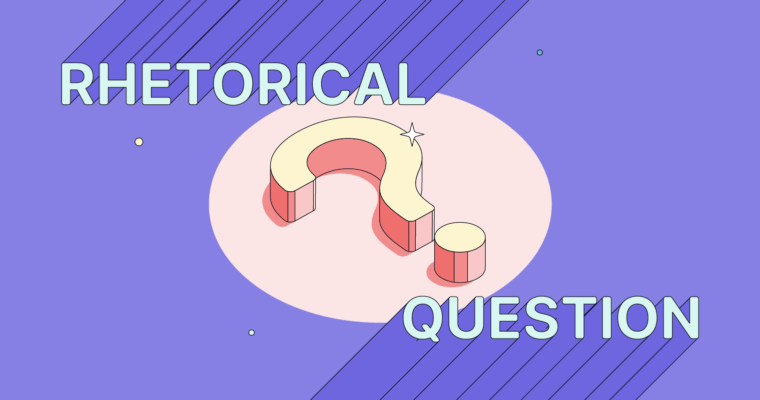"Từ đồng nghĩa với dislike" bao gồm một loạt các từ mô tả sự không thích, phản đối hoặc không hài lòng đối với một người, một vật hoặc một tình huống cụ thể. Đây là mô tả tổng quan về các từ này:
Các từ đồng nghĩa với "dislike" là những từ thể hiện sự không hài lòng, không ưa thích hoặc không đồng ý với cái gì đó. Chúng thường diễn đạt cảm xúc tiêu cực, từ mức độ nhẹ nhàng như sự không ưa đến mức độ mạnh mẽ như sự kinh tởm hoặc căm ghét. Những từ này thường được sử dụng để miêu tả sự không hài lòng hoặc sự phản đối về cái gì đó.
Các từ đồng nghĩa có thể bao gồm "hate", "detest", "abhor", "loathe", "despise", "disapprove of", "reject", "repudiate", "deplore", "abominate", "disfavor", "resent", "contemn", "disdain", "disinclination", "antipathy", "aversion", "disesteem", "disrelish", "disgust", "odium", "enmity", "hostility", "animosity", "coldness", "displeasure", "opposition", "rancor", "revulsion", "disfavorable", "displeasure", "unfavorable", "oppose", "disapproval", "disaffection", "discontent", "disinclined", "unwillingness", "unwilling", "disinterest", và nhiều từ khác nữa.

Những từ này được sử dụng tùy thuộc vào ngữ cảnh và mức độ của cảm xúc mà người sử dụng muốn diễn đạt. Chúng giúp bổ sung sắc thái ngôn ngữ và thể hiện đa dạng cảm xúc khác nhau đối với cái gì đó mà người nói không ưa thích hoặc không hài lòng với nó.
Tuy nhiên, việc chọn từ phụ thuộc vào ngữ cảnh và mức độ cảm xúc cụ thể mà bạn muốn truyền đạt.
Dưới đây là 40 từ đồng nghĩa với từ dislike:
| Disfavorable (không tán thành) Displeasure (sự không hài lòng) Unfavorable (không thuận lợi) Oppose (chống lại) Disapproval (sự không tán thành) Disaffection (sự không hài lòng, không lòng thành) Discontent (bất mãn) Disinclined (không thiện ý) Unwillingness (sự không sẵn lòng) Unwilling (không sẵn lòng) |
Disgust (sự kinh tởm) Odium (sự căm ghét) Enmity (sự thù địch) Hostility (sự thù địch) Animosity (sự thù oán) Coldness (sự lạnh lùng) Displeasure (sự không hài lòng) Opposition (sự phản đối) Rancor (sự oán giận) Revulsion (sự chán ghét) |
Disfavor (không ưa) Resent (bực tức) Contemn (coi thường) Disdain (coi thường) Disapprove (không tán thành) Disinclination (sự không thiện ý) Antipathy (sự không đồng lòng) Aversion (sự ghét) Disesteem (sự không tôn trọng) Disrelish (không thích, không ưa thích) |
Hate (ghét) Detest (ghê tởm) Abhor (ghê rợn) Loathe (chán ghét) Despise (khinh thường) Disapprove of (không tán thành) Reject (từ chối) Repudiate (phủ nhận) Deplore (lament) (thương tiếc, phê phán) Abominate (ghê tởm, căm ghét) |
Dưới đây là 40 ví dụ về từ đồng nghĩa với dislike
Hate - An intense feeling of aversion towards something or someone.
Ví dụ: She hates waking up early on weekends.
Detest - To feel intense dislike or disgust.
Ví dụ: He detests the smell of cigarette smoke.
Abhor - To regard with horror or intense dislike.
Ví dụ: They abhor any form of cruelty to animals.
Loathe - To feel intense dislike or disgust.
Ví dụ: She loathes doing the dishes after dinner.
Despise - To regard with contempt or aversion.
Ví dụ: He despises people who are dishonest.
Disapprove of - To have an unfavorable opinion about something.
Ví dụ: She disapproves of his reckless behavior.
Reject - To refuse to accept or consider something.
Ví dụ: They reject the proposal due to financial constraints.
Repudiate - To reject the validity or authority of something.
Ví dụ: The government repudiates claims of corruption.
Deplore - To strongly disapprove of something.
Ví dụ: We deplore the use of violence in protests.
Abominate - To regard with intense disgust or hatred.
Ví dụ: He abominates the idea of cheating in exams.
Disfavor - To regard with disapproval or lack of support.
Ví dụ: Her actions have brought disfavor upon the company.
Resent - To feel bitterness or indignation towards something.
Ví dụ: She resents being treated unfairly at work.
Contemn - To scorn or despise someone or something.
Ví dụ: He contemns those who show no empathy towards others.
Disdain - To regard with scorn or contempt.
Ví dụ: She looked at him with disdain after his rude remarks.
Disinclination - A reluctance or lack of willingness to do something.
Ví dụ: He felt a strong disinclination to attend the meeting.
Antipathy - A deep-seated feeling of dislike or aversion.
Ví dụ: There is mutual antipathy between the two rival companies.
Aversion - A strong feeling of dislike or opposition.
Ví dụ: She has an aversion to public speaking.
Disesteem - A lack of respect or low regard for something.
Ví dụ: His dishonest actions led to disesteem among his colleagues.
Disrelish - A lack of pleasure or liking for something.
Ví dụ: He had a disrelish for spicy food.
Disgust - A strong revulsion or intense dislike.
Ví dụ: The gruesome scene filled her with disgust.
Odium - Widespread hatred or strong dislike.
Ví dụ: The dictator's rule was marked by odium among the people.
Enmity - Deep-seated hostility or animosity.
Ví dụ: There has been a long history of enmity between the two nations.
Hostility - Opposition, unfriendliness, or antagonism.
Ví dụ: His remarks were met with hostility from the audience.
Animosity - Strong hostility or resentment.
Ví dụ: There is a deep-seated animosity between the two families.
Coldness - Lack of warmth or affection.
Ví dụ: Her coldness towards her colleagues made teamwork difficult.
Displeasure - Dissatisfaction or annoyance.
Ví dụ: His behavior caused displeasure among the guests.
Opposition - Resistance or disagreement towards something.
Ví dụ: There was strong opposition to the proposed law.
Rancor - Bitterness or resentment.
Ví dụ: Despite their past disagreements, there was no rancor between them.
Revulsion - A strong feeling of disgust or repulsion.
Ví dụ: The graphic images elicited a sense of revulsion in the audience.
Disfavorable - Not showing approval or support.
Ví dụ: His decision had a disfavorable impact on the project.
Displeasure - Dissatisfaction or unhappiness.
Ví dụ: The customer expressed displeasure with the service provided.
Unfavorable - Not giving support or approval.
Ví dụ: The weather conditions were unfavorable for outdoor activities.
Oppose - To be against or resist something.
Ví dụ: Many citizens oppose the construction of the new highway.
Disapproval - Lack of approval or acceptance.
Ví dụ: Her parents showed clear disapproval of her career choice.
Disaffection - A feeling of estrangement or disillusionment.
Ví dụ: The policy led to disaffection among the employees.
Discontent - A feeling of dissatisfaction or unhappiness.
Ví dụ: The workers expressed discontent with their salaries.
Disinclined - Unwilling or reluctant to do something.
Ví dụ: She was disinclined to participate in the debate.
Unwillingness - A lack of readiness or reluctance to do something.
Ví dụ: His unwillingness to compromise led to further conflicts.
Unwilling - Not eager or willing to do something.
Ví dụ: He was unwilling to admit his mistake.
Disinterest - Lack of interest or enthusiasm.
Ví dụ: His disinterest in the subject was evident from his lack of participation.
Nhớ rằng, việc lựa chọn từ phụ thuộc vào ngữ cảnh và cảm xúc cụ thể bạn muốn diễn đạt, và các ví dụ có thể được điều chỉnh tùy theo tình huống và ngữ cảnh sử dụng.
Tổng hợp các từ đồng nghĩa với "dislike" cung cấp một phạm vi từ vựng đa dạng, mô tả các mức độ không hài lòng, phản đối hoặc không ưa thích đa dạng. Việc sử dụng những từ này không chỉ làm phong phú thêm vốn từ vựng của bạn, mà còn giúp bạn diễn đạt rõ ràng hơn về cảm xúc và ý kiến của mình đối với một vấn đề nào đó.
Từ "dislike" và các từ đồng nghĩa của nó tạo ra một bức tranh ngôn ngữ phong phú, cho phép bạn chọn từ phù hợp nhất với ngữ cảnh và mức độ cảm xúc cụ thể. Điều này giúp truyền đạt ý kiến của bạn một cách chính xác và sinh động hơn, tạo ra sự hiểu biết rõ ràng về quan điểm cá nhân hoặc cảm nhận về một điều gì đó mà bạn không thích.
Xem thêm: 100++ từ vựng Tiếng Anh chủ đề sân bay
























